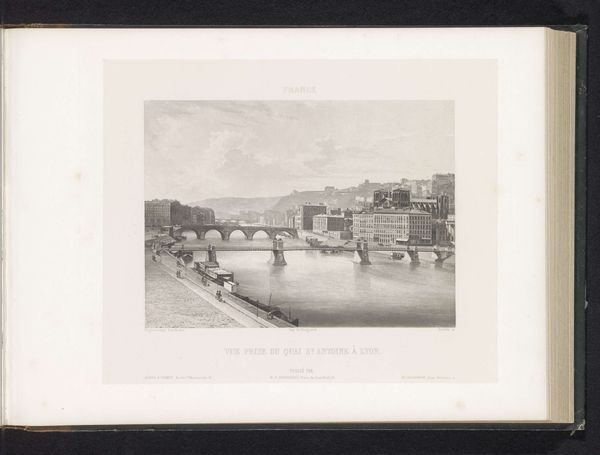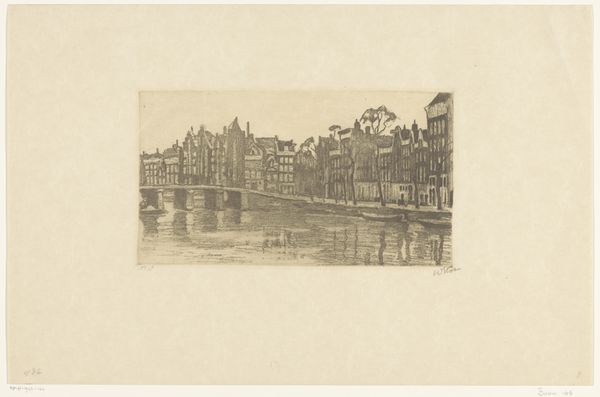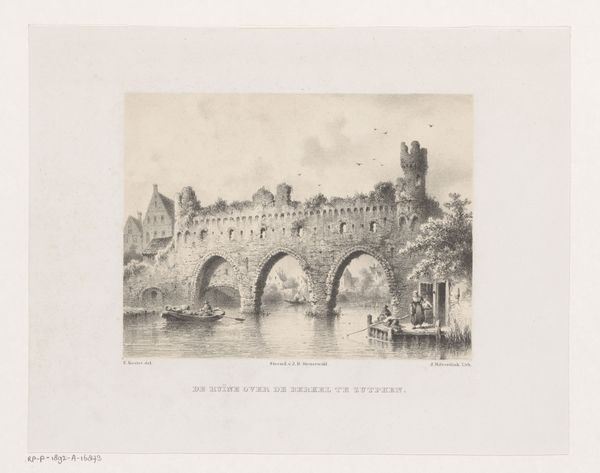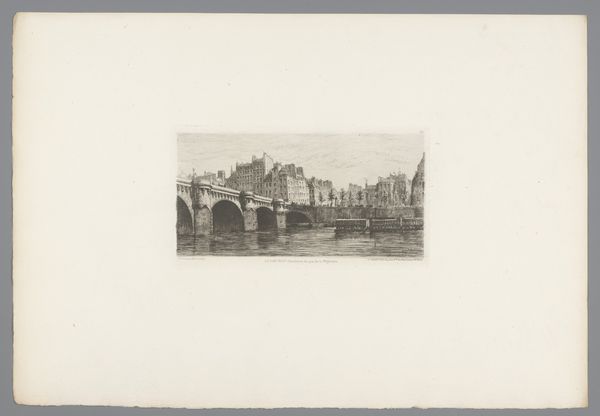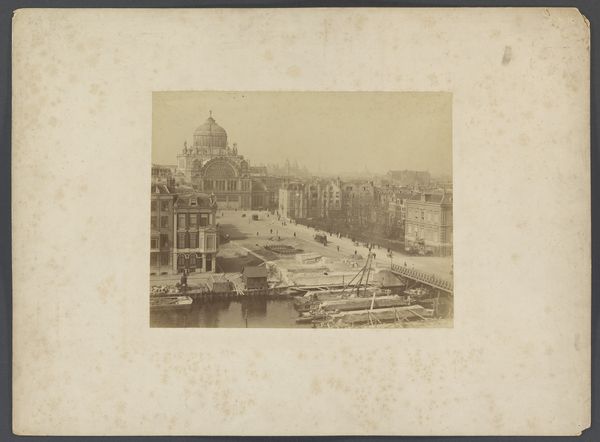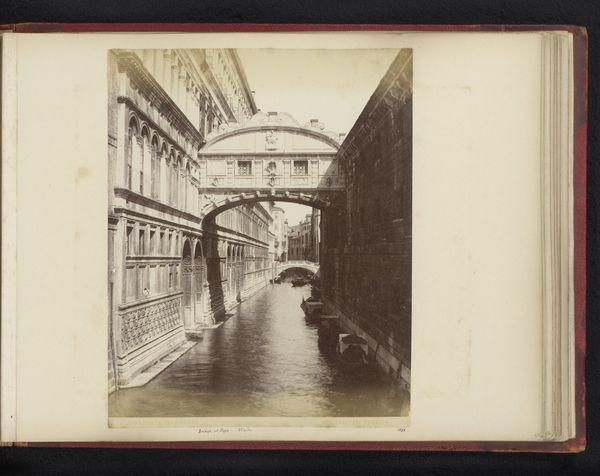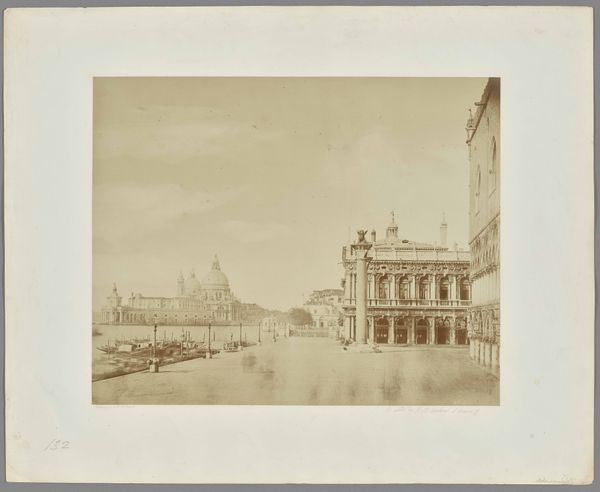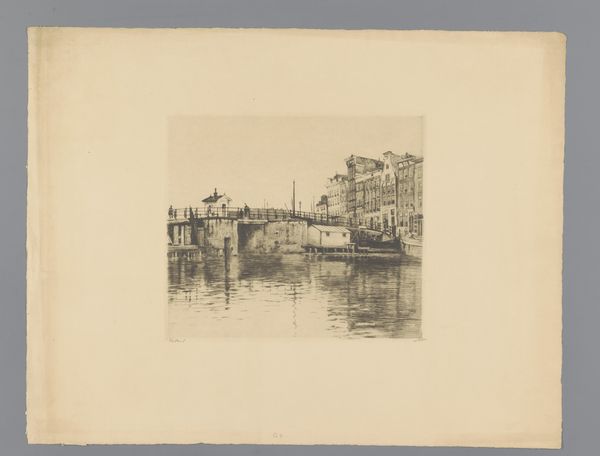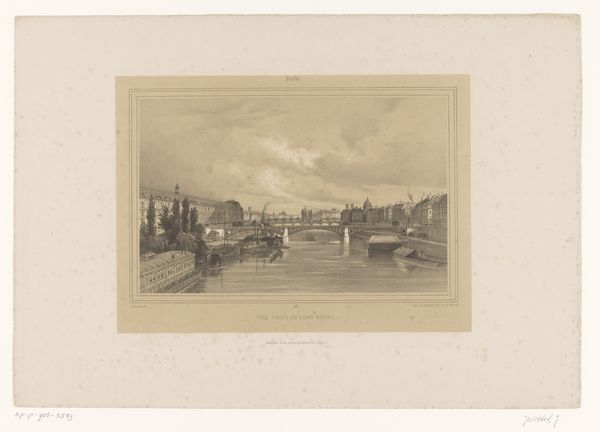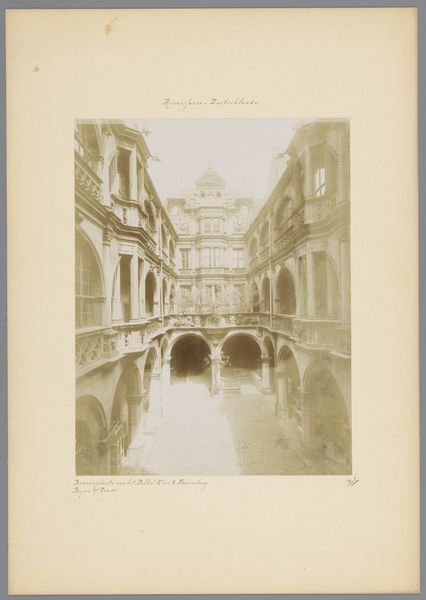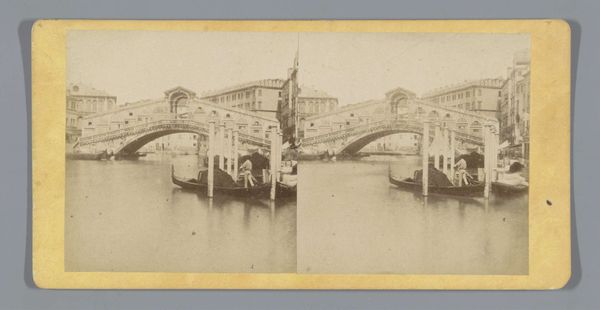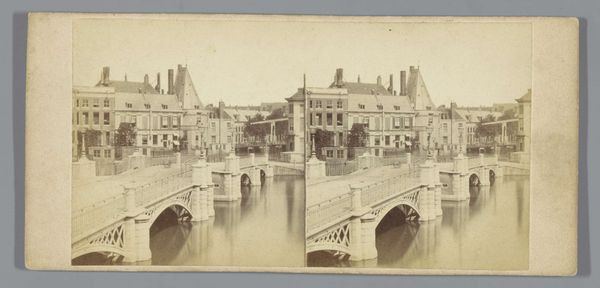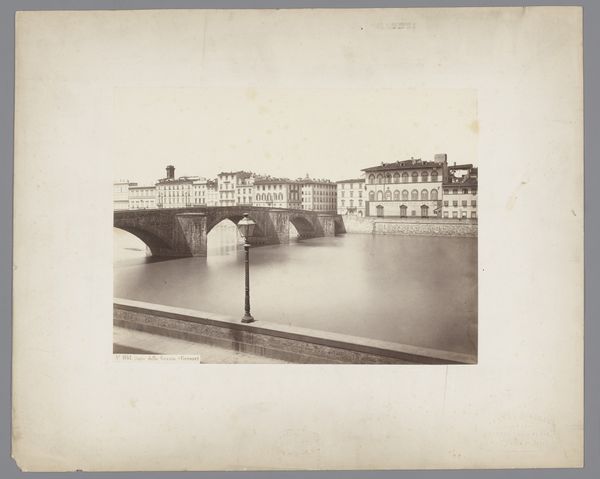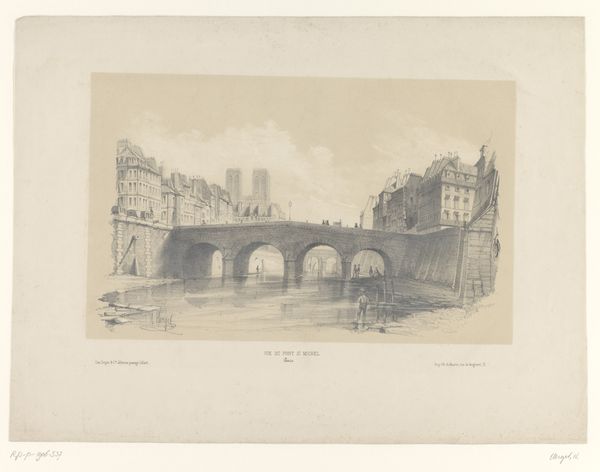
Halvemaansbrug over de Amstel en toren Swygh Utrecht in Amsterdam before 1870
0:00
0:00
pieteroosterhuis
Rijksmuseum
print, photography, gelatin-silver-print
#
old-fashioned
#
aged paper
#
pastel soft colours
#
parchment
# print
#
light coloured
#
landscape
#
retro 'vintage design
#
archive photography
#
photography
#
historical photography
#
old-timey
#
gelatin-silver-print
#
cityscape
#
soft colour palette
#
realism
Dimensions: height 91 mm, width 57 mm
Copyright: Rijks Museum: Open Domain
Pieter Oosterhuis made this photograph of the Halvemaansbrug over the Amstel in Amsterdam using an early photographic process. In the Netherlands, during the 19th century, photography played a role in documenting urban landscapes and architectural landmarks. Oosterhuis, as a photographer, was working within a context where photography was not just art but also a tool for urban planning and historical record-keeping. The image of the Halvemaansbrug is more than just a pretty picture; it's a document of Amsterdam's changing urban landscape, with its bridges and historical towers. The Rijksmuseum's acquisition and display of this photograph also tells a story about how photography was gradually accepted into the canon of fine art. It demonstrates a shift in institutional attitudes towards photography as a medium worthy of preservation and study alongside painting and sculpture. To understand the image better, you could research the architectural history of Amsterdam, and the development of photography as an art form in the Netherlands. This would reveal much about the social, economic, and artistic environment in which Oosterhuis worked.
Comments
No comments
Be the first to comment and join the conversation on the ultimate creative platform.
